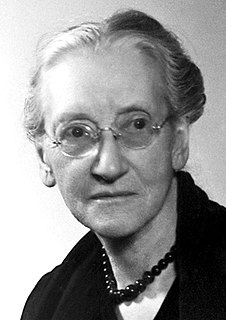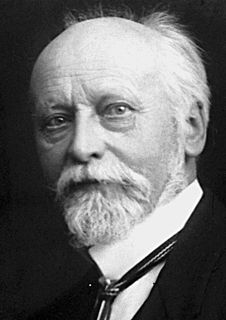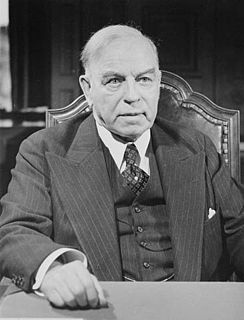A Quote by Emily Greene Balch
Another cause of change, one less noticeable but fundamental, is the modern growth of population closely connected with scientific and medical discoveries. It is interesting that the United Nations has set up a special Commission to study this question.
Related Quotes
An institution that...would permit Iraq, a terrorist state that refuses to disarm, to become soon the chair of the United Nations Commission on Disarmament, and which recently elected Libya - a terrorist state - to chair the United Nations Commission on Human Rights of all things, seems not to be even struggling to regain credibility. That these acts of irresponsibility could happen now, at this moment in history, is breathtaking.
Changing the DNA of a large, multilateral organization such as the United Nations to deal effectively with modern threats is not easy. Indeed, when the United Nations was created in the wake of World War II, threats came almost exclusively from one state carrying out acts of aggression against another.
A combination of very rapid population growth over the last 50 years and reckless economic growth during the same time has stored up massive problems for societies the world over. No nation is immune. The scientific evidence tells us all we need to know: carry on with business-as-usual growth-at-all-costs, and we're stuffed
The United Nations exists not merely to preserve the peace but also to make change - even radical change - possible without violent upheaval. The United Nations has no vested interest in the status quo. It seeks a more secure world, a better world, a world of progress for all peoples. In the dynamic world society which is the objective of the United Nations, all peoples must have equality and equal rights.
It is interesting to transport one's self back to the times when Astronomy began; to observe how discoveries were connected together, how errors have got mixed up with truth, have delayed the knowledge of it, and retarded its progress; and, after having followed the various epochs and traversed every climate, finally to contemplate the edifice founded on the labours of successive centuries and of various nations.
For all the civilians saved thanks to the presence of peacekeepers, there have been those who were lost - the United Nations personnel who sacrificed their lives for a noble cause. Even as we mourn our fallen colleagues, we are all uplifted by their unflinching commitment and are inspired to strive even harder for the collective cause so eloquently envisaged in the United Nations Charter: a world free from the scourge of war.
I was at the World Bank and a commission reviewed our work on inequality for the U.S. Congress or somebody, and the head of the commission said to us: "You are spending taxpayer money to study issues like inequality? Which goes directly against capitalism and growth." That was the perception, that it should not be studied.
The fact is, some of the most respected scientific bodies in the world, including Codex Alimentarius (jointly run by the World Health Organization and the Food and Agricultural Organization of the United Nations), the American Medical Association, the British Medical Association, and the American Public Health Association, have stated that more research needs to be done on GMOs through premarket safety assessments before we can truthfully determine their safety.




































